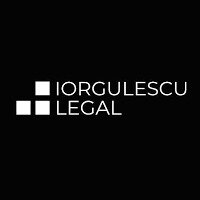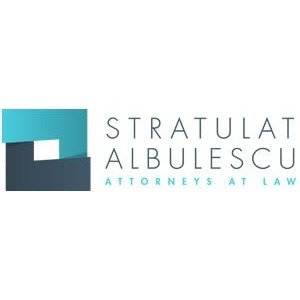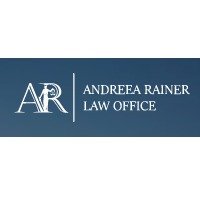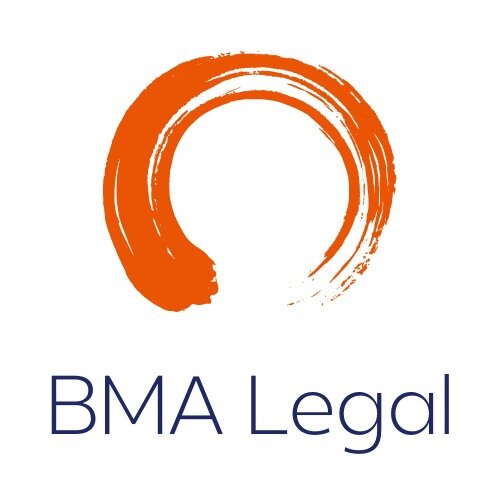Best Financial Services Regulation Lawyers in Bucharest
Share your needs with us, get contacted by law firms.
Free. Takes 2 min.
List of the best lawyers in Bucharest, Romania
About Financial Services Regulation Law in Bucharest, Romania
Financial Services Regulation in Bucharest, Romania, is a comprehensive field governed by a multitude of laws and guidelines aimed at ensuring the transparency, integrity, and efficiency of the financial markets. These regulations apply to a wide range of financial institutions including banks, insurance companies, investment firms, and funds. The Romanian Financial Supervisory Authority (ASF) and the National Bank of Romania (NBR) play key roles in overseeing financial services to protect consumers and promote stability in the marketplace. Understanding these complex rules is crucial for compliance and informed decision-making.
Why You May Need a Lawyer
Engaging a lawyer specializing in financial services regulation can be vital in several situations. Business expansion, establishment of financial entities, and navigating mergers or acquisitions often require expert legal guidance to ensure compliance with local and international regulations. Legal professionals can also assist with dispute resolution, investigations, or audits held by regulatory authorities. Additionally, compliance management across evolving regulations and legal litigation or arbitration proceedings can present challenges where professional legal assistance is indispensable.
Local Laws Overview
Key aspects of local laws relevant to Financial Services Regulation in Bucharest, Romania, include several primary legislative and regulatory frameworks:
- Law No. 297/2004 - Governs capital markets trading, intermediary relations, and investor protection.
- Law No. 312/2004 - Relates to structuring responsibilities and operations within the financial system guided by the National Bank.
- EU Directives and Regulations - Romania, as an EU member, adheres to applicable directives such as MiFID II and Basel III, impacting financial market oversight.
- Consumer Protection Laws - These laws emphasize safeguarding consumer interests in financial transactions and ensuring transparent practices by financial firms.
Frequently Asked Questions
1. What are the primary regulatory bodies overseeing financial services in Romania?
The Romanian Financial Supervisory Authority (ASF) and the National Bank of Romania (NBR) are the two main institutions overseeing financial services.
2. How does EU regulation impact Romanian financial services regulation?
As an EU member, Romania must align its financial services regulations with EU laws and directives, significantly impacting compliance and operational standards.
3. What is the role of the National Bank of Romania?
The National Bank of Romania is responsible for maintaining stability within the national currency, implementing monetary policies, and supervising banking activities.
4. What compliance challenges might companies face in this field?
Companies may face challenges around adapting to evolving regulatory standards, managing compliance costs, and ensuring accurate and timely reporting practices.
5. Can foreign entities establish banks in Romania?
Yes, foreign entities can establish banks in Romania, subject to regulatory approval and compliance with Romanian banking laws.
6. What are the penalties for non-compliance with financial regulations?
Penalties can range from financial fines, restitution demands, to suspension of business licenses, and in severe cases, legal prosecution.
7. Is consumer protection strong in financial services in Romania?
Yes, consumer protection is a significant focus, with strict regulations ensuring fair treatment, transparent information, and mechanisms for addressing grievances.
8. How fast can I register a financial services company in Romania?
Registration duration can vary but typically takes several weeks owing to comprehensive compliance checks and requisite documentation processing.
9. What is the MiFID II directive, and why is it important?
MiFID II is an EU directive aimed at strengthening investor protection and transparency within financial markets, impacting Romanian regulatory standards.
10. How are new financial products developed within regulation constraints?
New financial products must undergo rigorous assessment for compliance with existing laws and are often subject to approval processes by regulatory authorities.
Additional Resources
For further assistance, consider these resources:
- The Romanian Financial Supervisory Authority (ASF) provides detailed guidelines and contact points for inquiries.
- The National Bank of Romania offers resources and information regarding monetary policies and financial supervision.
- Professional legal associations like the Romanian Bar Association may provide referrals to specialized financial regulation lawyers.
Next Steps
If you need legal assistance in Financial Services Regulation, consider the following steps:
- Identify your specific legal needs to address issues directly related to your circumstances.
- Gather all relevant documentation, including company records and communications with financial institutions or regulatory authorities.
- Consult with a legal expert specializing in financial services regulation to evaluate your situation and receive tailored advice.
- Consider contacting the Romanian Bar Association for a directory of qualified legal professionals in this field.
- Stay informed about changes in both local and international regulations to maintain compliance and anticipate legal risks.
Lawzana helps you find the best lawyers and law firms in Bucharest through a curated and pre-screened list of qualified legal professionals. Our platform offers rankings and detailed profiles of attorneys and law firms, allowing you to compare based on practice areas, including Financial Services Regulation, experience, and client feedback.
Each profile includes a description of the firm's areas of practice, client reviews, team members and partners, year of establishment, spoken languages, office locations, contact information, social media presence, and any published articles or resources. Most firms on our platform speak English and are experienced in both local and international legal matters.
Get a quote from top-rated law firms in Bucharest, Romania — quickly, securely, and without unnecessary hassle.
Disclaimer:
The information provided on this page is for general informational purposes only and does not constitute legal advice. While we strive to ensure the accuracy and relevance of the content, legal information may change over time, and interpretations of the law can vary. You should always consult with a qualified legal professional for advice specific to your situation.
We disclaim all liability for actions taken or not taken based on the content of this page. If you believe any information is incorrect or outdated, please contact us, and we will review and update it where appropriate.

















